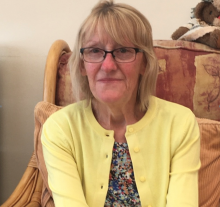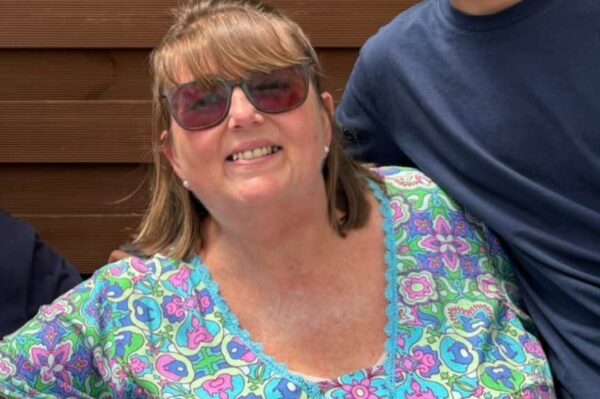Get the latest news, inspiring stories, upcoming events, and valuable support services delivered straight to your inbox.
MDUK launches Wales version of 'Shining a Light on the impact of Covid-19'

MDUK will today present findings from our Shining a Light on the impact of Covid-19 report before a Cross Party Group in Wales.
It comes as a Nicola Davies, from Ceredigion, reveals the ongoing impact the pandemic has had on her health. Nicola lives with limb girdle muscular dystrophy and has been left struggling to cope.
She’s experienced huge disruptions to vital care and medical appointments amid the pandemic which have impacted her physical and mental wellbeing.
Nicola said: “My life changed forever when Covid-19 happened. I’ve been left stuck in the house and I’m too scared to do anything anymore. I used to be on the go all the time, but my breathing has significantly deteriorated. It means I’ve had to stop singing, which was one of the greatest pleasures I had in life.
“I lost my mum to the virus earlier this year and I’m terrified that my husband or a carer will catch Covid and pass it to me, especially as cases are rising again in my area. My care has been severely disrupted and it’s made an already terrible situation much, much worse.”
In the summer we launched our UK version of Shining a Light on the Impact of Covid-19, and since then we’ve been working on producing reports for each devolved nation, starting with Wales.
Our report reveals how the pandemic has affected people living with a muscle-wasting condition in Wales and exposes pre-existing gaps in neuromuscular services. The report also highlights priority areas to strengthen neuromuscular care going forwards.

Nicola is just one of the 3,400 people in Wales living with a muscle-wasting condition who needs our recommendations implemented as a matter of urgency. This is because it’s essential that people living with a muscle-wasting condition have access to specialist health care, regular exercise, daily essentials, care packages, family support systems and physiotherapy to lead safe and healthy lives.
The key findings from our Shining a Light report in Wales found that the main issues affecting people were:
- lockdown and shielding negatively impacting people’s physical and mental health
- reduced access to family carers or care workers due to lockdown or shielding
- disruption or delays to accessing specialist muscle clinical appointments due to Covid-19
There is no resilient healthcare structure across Wales, meaning the neuromuscular workforce is overstretched and under resourced, compromising on vital care coordination and management. This has been greatly exacerbated during the pandemic.
Nicola said: “I lost nearly all of my regular hospital appointments and many were moved online during lockdowns. I am very sad that the care services where I live are so under-resourced and I feel that it’s a postcode lottery to access good-quality care at the best of times.
“The difference between England and Wales is enormous and I feel like I’m being forgotten about. We’ve been fighting for better care for years so it’s really important the recommendations are implemented.”
We are calling for both short and long-term recovery priorities to improve the lives of people in Wales living with muscle-wasting conditions. These include:
- Formalising the Wales Neuromuscular Network and appointing an NHS-funded network manager
- Allocating sustainable and consistent funding for neuromuscular services to accurately reflect the care needs of the neuromuscular population
- Increasing investment in the specialist neuromuscular teams with more neuromuscular consultants, physiotherapist, nurse specialist, psychologists, and care advisors
- Increasing the number of neuromuscular trained staff within community services who can bridge the gap between specialist neuromuscular teams in the Central Belt and their local areas
You can download and read the report for Wales in full here
Lucia Gillespie, our Advocacy and Information Officer for Wales, said: “People living with a muscle-wasting condition in Wales have told us that they’ve experienced significant deterioration in their overall wellbeing throughout the pandemic. Many services including specialist neuromuscular services referrals and diagnostics were halted or significantly reduced, leaving people with delayed diagnosis and no access to expert care.
“Consequently, many living with these conditions have been unable to receive the full treatment and care they need and are at severe risk of faster progression of their conditions. We urge stakeholders to implement the recommendations from our Shining a Light report to ensure people with a muscle-wasting condition receive the care they need to improve overall health outcomes and quality of life.”


